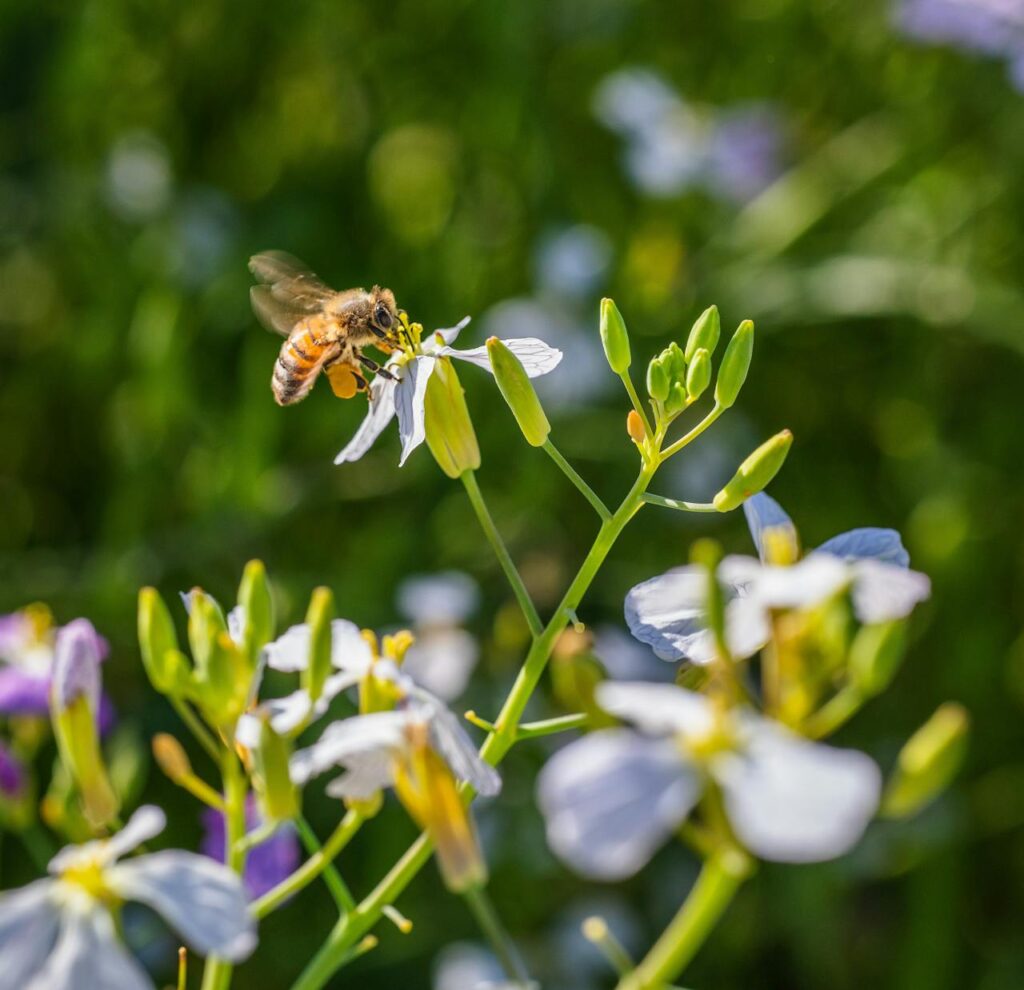Why is local honey good for allergies?
Local honey is believed to be beneficial for allergies because it contains small amounts of pollen from local plants. When you consume local honey regularly, you’re ingesting trace amounts of these allergens. This exposure may help your immune system gradually become desensitized to the allergens, potentially reducing allergic reactions over time.
How do bees make honey?
Bees collect nectar from flowers using their long, tube-shaped tongues. They store this nectar in a special “honey stomach” separate from their digestive stomach. Enzymes in the honey stomach begin to break down the complex sugars in the nectar.
What happens once bees return to the hive with nectar?
Back at the hive, the bees pass the partially digested nectar to other worker bees. These house bees continue to process the nectar by ingesting it, regurgitating it, and dehydrating it with their wings. This process helps reduce the moisture content of the nectar and transform it into honey.
How do bees store honey?
Once the nectar has been transformed into honey, the bees store it in hexagonal wax cells within the hive’s honeycomb. The bees fan their wings over the honeycomb to further evaporate excess moisture, ensuring the honey reaches the right consistency for long-term storage.
What happens after honey is stored in the honeycomb?
After the honey is sealed with beeswax caps, it undergoes a process called “ripening.” During ripening, the honey’s moisture content continues to decrease naturally, making it resistant to spoilage. This ripening process helps preserve the honey’s flavor and nutritional benefits.
How do beekeepers harvest honey?
Beekeepers harvest honey by carefully removing honey-filled frames from the hive. They use special tools to gently separate the bees from the honeycomb without harming them. Once removed, the frames are taken to a processing facility where the honey is extracted using centrifugal force, filtered to remove any impurities, and then bottled for sale.
Understanding the process of how bees make honey and the potential benefits of local honey for allergies highlights the natural and intricate relationship between bees, plants, and humans. Whether for its health benefits or its delicious taste, local honey remains a cherished product that connects us to our environment and supports sustainable beekeeping practices.
